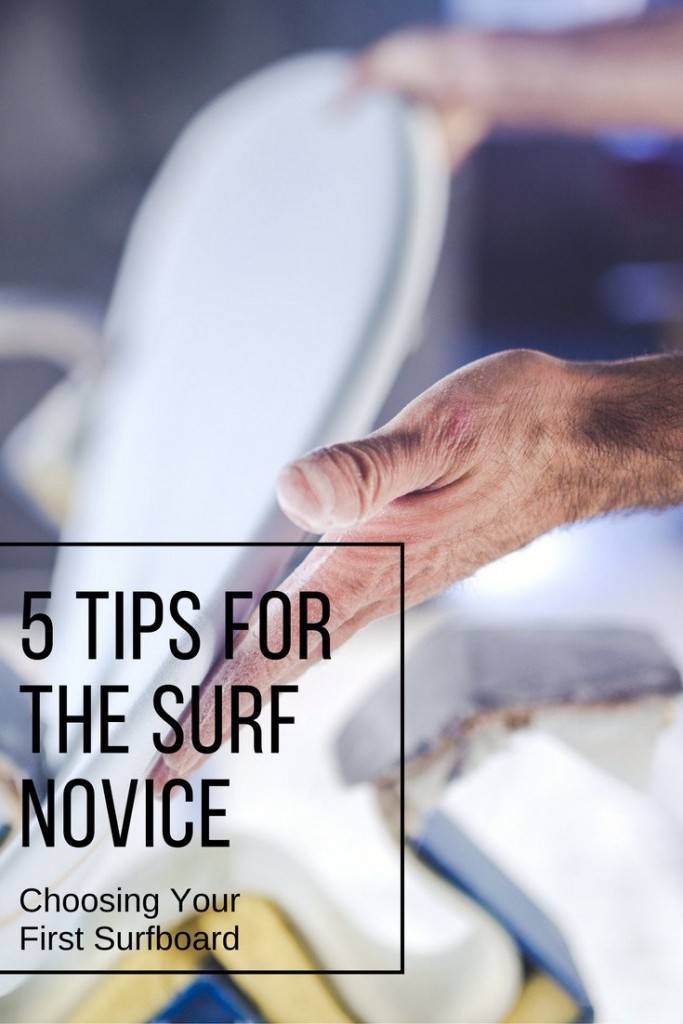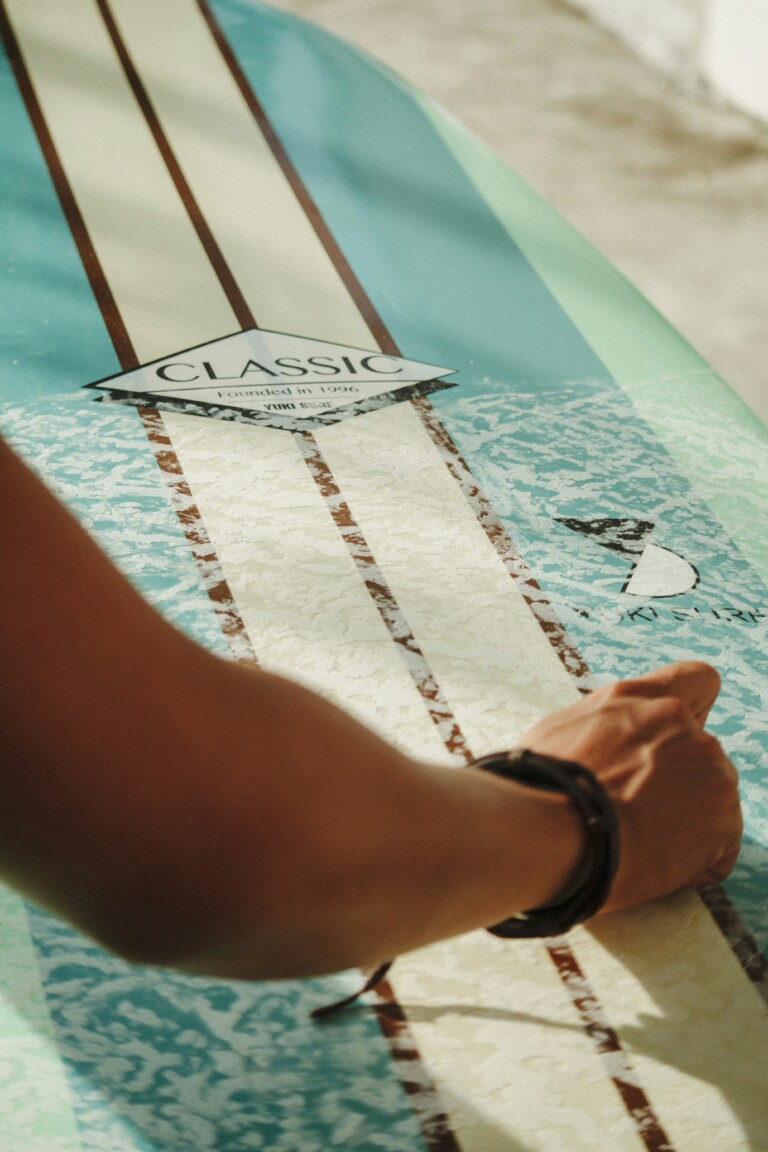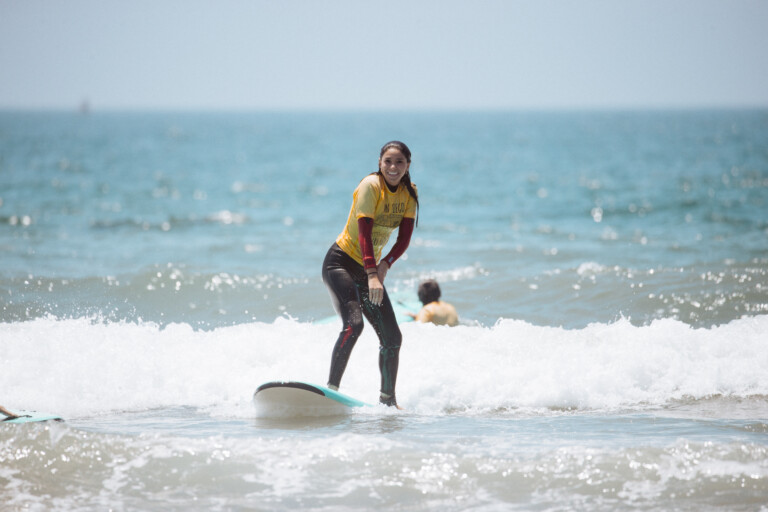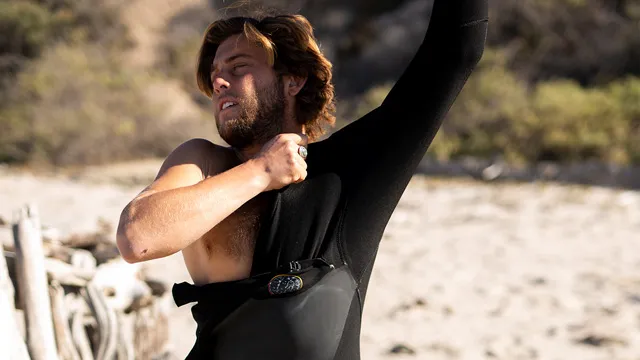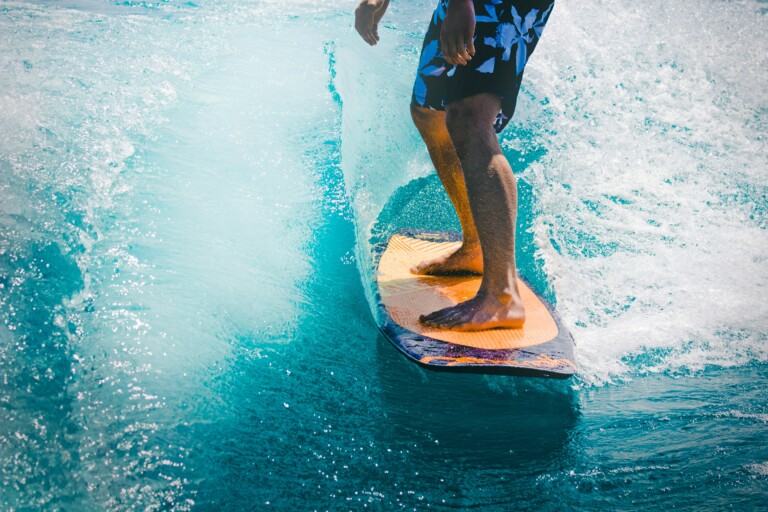Choosing your first surfboard correctly makes a world of difference in how long it will take you to get the hang of catching waves. A typical knee-jerk reaction is to buy the most expensive, most hi-tech board available with the assumption that it will serve you better, but it can actually make the beginning months of practice much harder. Here are 5 tips that can help you or your novice surfer get the best surfboard for the first 3 to 6 months of surfing lessons.Choose a board with a high buoyancy. The thicker your board, the easier getting or regaining your balance will be. Thicker boards pop up to the surface quicker, and are much more forgiving of mistakes.
Don’t worry about the number of fins or the shape of your board right away. Chances are, you aren’t going to be learning maneuvers in your first, second, or even tenth lesson, so looking at fin shapes at this time isn’t necessary. While a board with three fins may look cooler, it doesn’t do the beginner any favors.
Don’t spend a lot of money on your first board. If this is your first time out on the waves, you may be doing a lot of bumping and banging, and your board will show it. Until you are confident and moderately educated in surfing, an expensive board will quickly become a $400 beat-up board.
Choose a wide, stable board. Thin, narrow boards look cool, but a beginner should choose something thicker and with more weight. These boards are heavier but provide a sturdier platform for the novice surfer to practice on. They allow for faster paddling and pop up more quickly than their professional counterparts. These thicker boards will allow you to stand up on a wave much more quickly, but take more effort to get going.
Choose a board that reflects your skill level and your interests. Obviously, choosing a board meant for advanced surfers when you are at an intermediate level is the wrong move. Stick with something that allows for growth and development, and think of your ultimate goals as a surfer.
No matter how advanced you would like to become at surfing, the beginning is the only place to start. As a surfer, your board is your best friend, and obtaining a board that will serve you well is a time-saving and frustration-stopping way to dive right in. If you want to hit the surf with the best of the dudes, click here for information on getting private and group surf lessons with San Diego Surf School.











